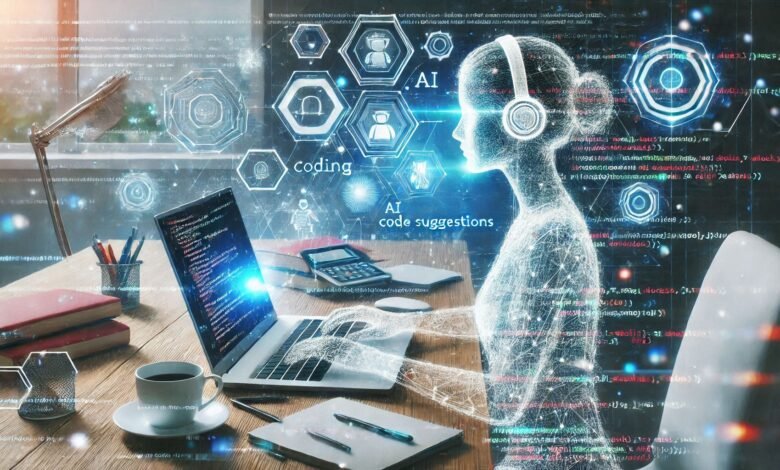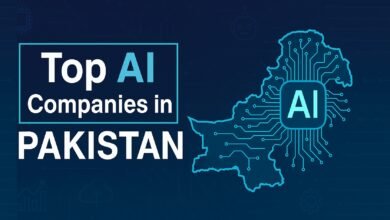How AI Coding Assistants Are Enhancing Developers Productivity in 2025

In the dynamic world of software development, staying ahead of the curve is no longer optional—it’s essential. Enter AI coding assistants, tools designed to revolutionize the way developers work. By 2025, these intelligent systems will have become indispensable, offering features that boost productivity, improve code quality, and streamline workflows. Whether you’re a seasoned developer or just starting your coding journey, AI coding assistants promise to reshape your experience, making coding faster, smarter, and more efficient.
In this article, we’ll explore how AI coding assistants are enhancing developer productivity, delving into their evolution, benefits, challenges, and future implications. Let’s unlock the potential of AI-powered coding.
1. The Evolution of AI Coding Assistants
From Code Generators to Intelligent Collaborators
Since their inception, AI coding assistants have advanced significantly. Early iterations, such as basic text autocompletes and syntax checkers, offered minor convenience but lacked the sophistication seen today. Tools like GitHub Copilot, Amazon CodeWhisperer, and TabNine have transformed into intelligent collaborators, understanding context, predicting developer needs, and even suggesting entire code blocks.
These tools leverage advancements in natural language processing (NLP) and machine learning, enabling them to analyze vast repositories of code and provide relevant solutions in real-time. As a result, they serve not only as coding aids but also as reliable partners in problem-solving.
Also Read: The 4 Most Powerful AI Prompting Techniques
2. Productivity Gains for Developers
How AI Boosts Developer Efficiency
One of the most significant impacts of AI coding assistants is the marked improvement in developer productivity. Recent studies reveal that developers using AI tools experience a 26% increase in task completion rates, with measurable boosts in code commits (13.5%) and faster iteration cycles (38.4% more frequent compilations).
Key productivity benefits:
- Time Savings: AI assistants automate repetitive tasks such as boilerplate code generation, freeing developers to focus on complex problem-solving.
- Real-Time Suggestions: Intelligent recommendations streamline workflows, ensuring fewer interruptions.
- Improved Focus: Developers spend less time debugging and more time innovating.
For example, a multinational tech firm reported completing a major application overhaul in half the projected time using AI-assisted development, underscoring the practical benefits of these tools.
3. Supporting Junior Developers
Closing the Skill Gap with AI Assistance
Junior developers often struggle with understanding best practices and adhering to coding standards. AI coding assistants bridge this gap by providing real-time guidance, enabling juniors to write high-quality code from the start. Productivity boosts for less experienced developers can reach an impressive 40%, according to industry reports
Advantages for Junior Developers:
- Learning on the Job: Tools like GitHub Copilot suggest best practices, turning each coding session into a learning experience.
- Error Reduction: By catching potential mistakes early, AI assists in minimizing debugging sessions.
- Accelerated Onboarding: New hires adapt faster, as AI provides instant solutions and contextual explanations.
With AI coding assistants, the daunting task of navigating complex projects becomes manageable for newcomers, fostering confidence and competence.
4. Streamlining Agile Workflows
AI as a Catalyst for Agile Methodologies
Agile development thrives on rapid iteration and feedback, and AI coding assistants are perfectly suited to this approach. By automating mundane tasks, these tools allow teams to prioritize innovation and user-centric design.
Enhancements to Agile Workflows:
- Rapid Prototyping: AI tools help create prototypes quickly, enabling faster validation of ideas.
- Continuous Integration Support: Real-time suggestions reduce integration errors, making CI pipelines smoother.
- Enhanced Collaboration: AI tools enable seamless handovers by maintaining coding consistency.
Take, for instance, a case study where a startup reduced its sprint cycles by 30% using AI-driven coding support. These efficiency gains demonstrate the compatibility of AI assistants with agile frameworks.
5. Enhancing Code Quality and DebuggingMaintaining Standards While Moving Fast
In traditional workflows, speed often compromises code quality. AI coding assistants address this by offering features such as real-time code reviews, error detection, and adherence to predefined coding standards.
Key Features for Code Quality:
- Automated Testing: AI tools generate test cases and validate code functionality.
- Consistent Standards: Enforce organizational coding guidelines automatically.
- Debugging Made Easy: AI highlights potential issues and suggests fixes.
For example, developers at a leading gaming company reported a 50% reduction in debugging time after integrating AI coding assistants into their development pipeline.
6. Challenges and Ethical Considerations
Navigating the Risks of AI in Coding
While AI coding assistants offer remarkable advantages, they are not without challenges. Key concerns include:
Ethical and Practical Challenges:
- Data Privacy: The use of AI tools requires sharing codebases, raising security questions.
- Over-reliance: Developers risk becoming dependent on AI, potentially eroding problem-solving skills.
- Intellectual Property Issues: The legality of AI-generated code can be a gray area, necessitating clear policies.
Organizations must address these challenges by implementing robust guidelines and fostering responsible AI usage.
7. Future Trends and Implications
The Next Frontier of AI in Development
Predictions indicate a bright future for AI coding assistants, with their deeper integration into every aspect of development. By 2030, AI is expected to:
- Fully Integrate with DevOps: Enhancing deployment pipelines with predictive analytics.
- Improve Collaboration: Facilitating seamless teamwork through shared AI insights.
- Influence Education: Redefining coding curriculums to include AI tool training.
These trends suggest that AI coding assistants will continue to evolve, offering increasingly sophisticated support to developers.
Conclusion: The AI Advantage
AI coding assistants are more than just tools—they are transformative allies in the development process. From enhancing productivity and empowering junior developers to streamlining workflows and maintaining code quality, their impact is undeniable. As we look to the future, embracing AI in coding will not only drive efficiency but also inspire innovation in ways previously unimaginable.
Ready to supercharge your development process? Explore the latest AI coding assistants today and experience the future of programming firsthand. Whether you’re building the next big app or streamlining legacy code, AI has the potential to unlock new levels of productivity and creativity. Start your AI journey now!











